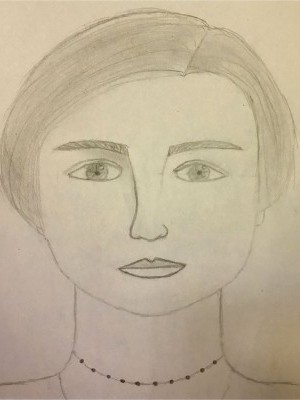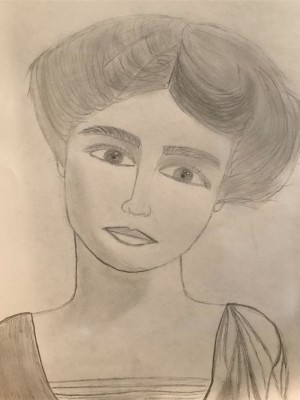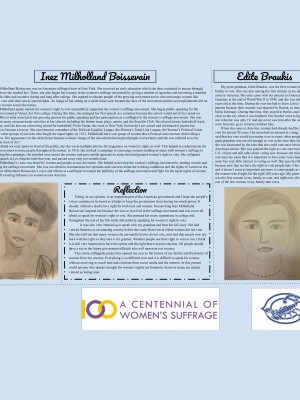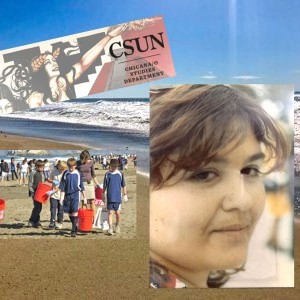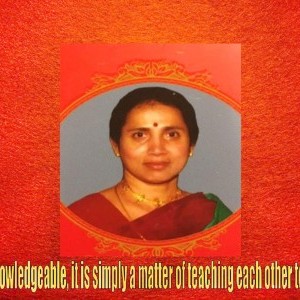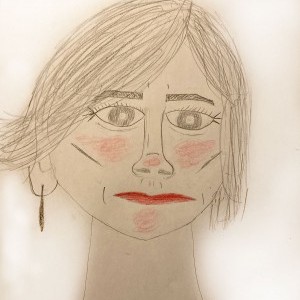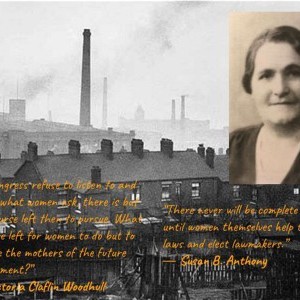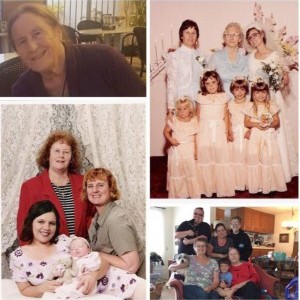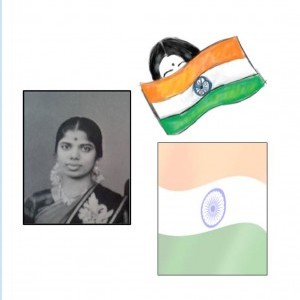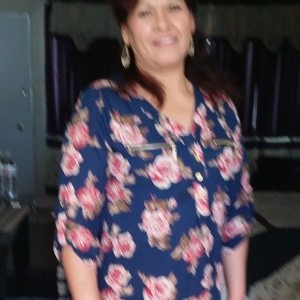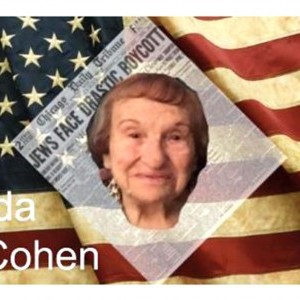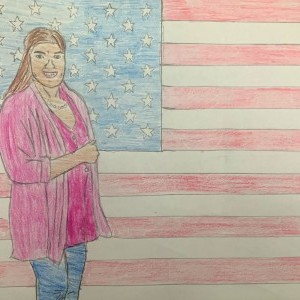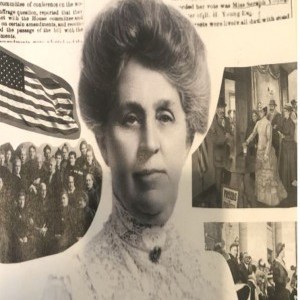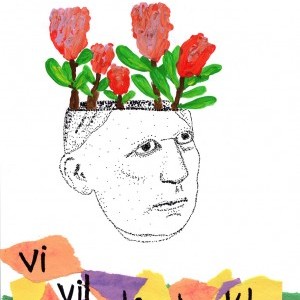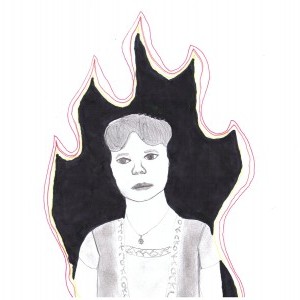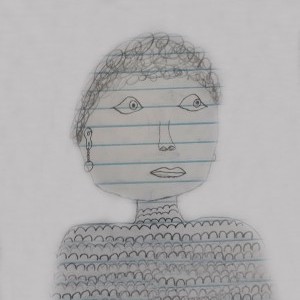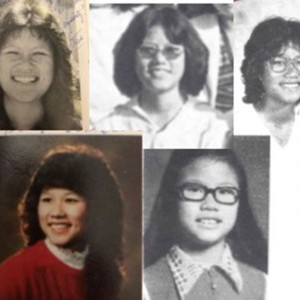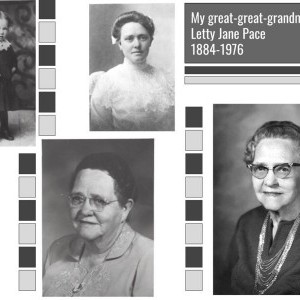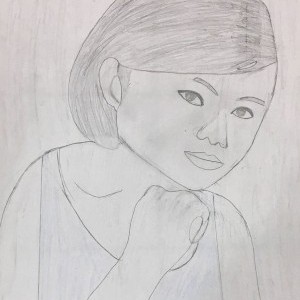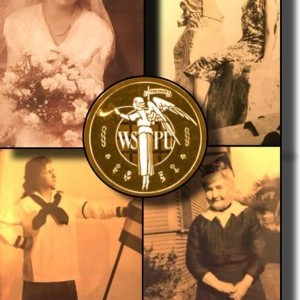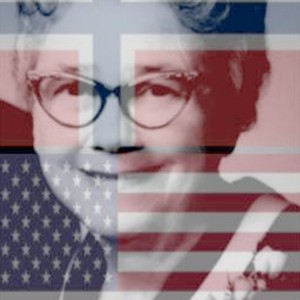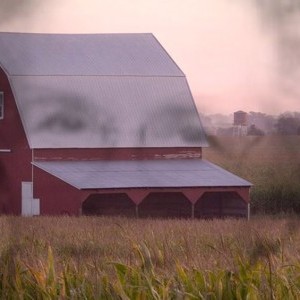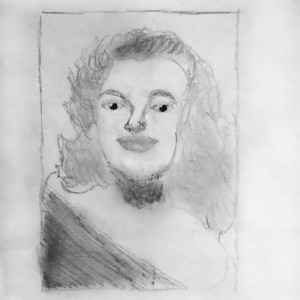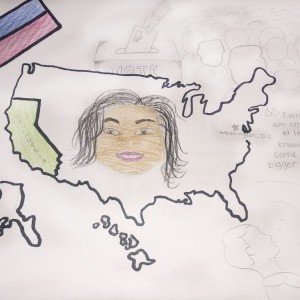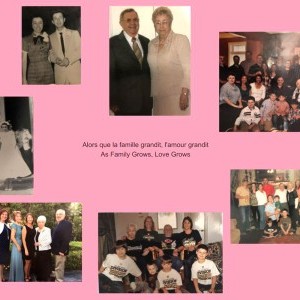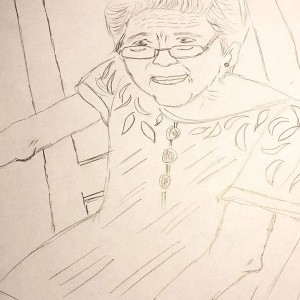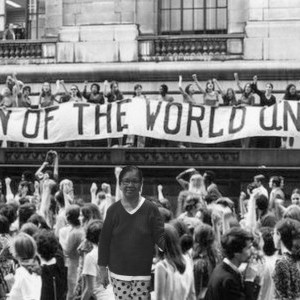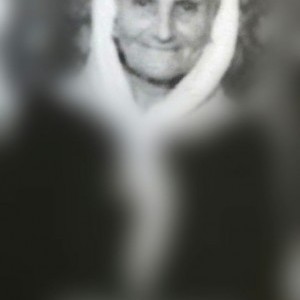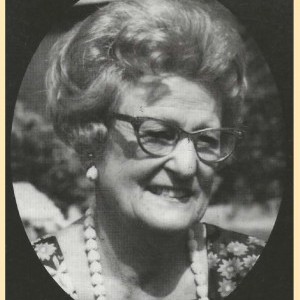Natalie Fahs
Adolfo Camarillo High School | Camarillo, CA | 10th
Inspirational Family Member
My Great-Grandma
My great-grandma, Edite Braukis, was the first woman in my family to vote. She was also among the first women in my family to come to America. She only came with her parents to America from Germany at the end of World War II in 1945, and she was only 16 years old at the time. During the war she had to leave Latvia with her parents because their country was targeted by Russia, so they went and hid in Germany. During that time they stayed in Berlin, and were very close to the city when it was bombed. Her brother went to fight in the war when he was only nineteen, and she never saw him after the war. They were forced to go to America without him.
When she came to America, women had already had the right to vote for almost thirty years. Her mom had no interest in voting, as she said that her vote would not matter over so many other people. My great-grandma was not old enough to vote at the time they arrived, but she was fascinated by the idea that she could vote once becoming an American citizen. She was granted the right to vote once becoming a U.S. citizen and still talks about voting now because she tries to convince my mom that it is important to have your voice heard, but my mom has very little interest in voting as well. She says that this is because now that we have the right to vote people take it for granted, and it doesn’t seem as important anymore to some people as it was to the women who fought for the right a hundred years ago. My great-grandma was the first woman in my family to vote, and right now, she is still one of the few women in my family that votes.
Historical Figure I Admire
Inez Milholland Boissevain
Inez Milholland Boissevain was an American suffragist born in New York. She received an early education, which she then continued to pursue through college where she studied law. There, she also began her journey in the women’s suffrage movement by giving a number of speeches and becoming a member of multiple clubs and societies during and long after college. She aspired to educate people of the growing movement and to also encourage women like herself to vote with their newly earned rights. An image of her sitting on a white horse soon became the face of the movement and her accomplishments left an impact on women across the nation.
Inez Milholland spoke mainly for women’s right to vote and publicly supported the women’s suffrage movement. She began public speaking for the suffrage movement at Vassar, her first college. During this time, she arranged her first speech at a cemetery because the school would not let her speak on campus. This is what soon led to her growing passion for public speaking and her participation as a suffragist in the women’s suffrage movement. She was involved in many extracurricular activities at her schools including the debate team, plays, sports, and the Socialist Club. She played tennis, basketball, track, and hockey, and she also set a throwing record for basketball. From Vassar, she went to New York University Law School and continued to pursue her aspiration to become a lawyer. She soon became a member of the Political Equality League, the Women’s Trade Union League, the Women’s Political Union, and a few other groups of activists who fought for equal rights. In 1912, Milholland led a vast group of women down Pennsylvania Avenue while riding a white horse. Her appearance on the white horse became a classic image of the movement that inspired people everywhere, and she was referred to as the “American Joan of Arc”.
Milholland not only spoke in front of the public, but she wrote multiple articles for magazines on women’s rights as well. This helped to communicate the suffrage movement to more people throughout the nation. In 1916, she campaigned to encourage women residing in states with women’s suffrage to vote. During this campaign, she traveled west across the country and gave public speeches to states that had granted women’s right to vote. She collapsed during a speech in Los Angeles later that year, and passed away only two months later.
Inez Milholland’s voice was heard by women and people across the nation. She helped to develop the women’s suffrage movement by leading women and advocating the suffrage movement. She was not afraid to communicate her opinions and concerns about the working conditions and the rights of women to the public. Inez Milholland Boissevain’s voice and efforts as a suffragist to extend the publicity of the suffrage movement and fight for the equal rights of women to vote left a lasting influence on women across America.
What the Project Means to Me
Voting, in my opinion, is an important part of the American government and I hope the people’s voices continue to be heard as it helps to keep the government from having too much power. It should, without a doubt, be a right for both men and women. Researching Inez Milholland Boissevain inspired me because she was so involved in the suffrage movement and was not at all afraid to speak for women’s right to vote. She pursued her many aspirations in college and throughout the rest of her life while still publicly speaking for women’s right to vote.
It was also very interesting to speak with my grandma and hear her life story. She had viewed America as an amazing country before she came from Latvia where women did not vote. She also told me that many women she personally knows do not vote, and said that people now are born with the right so they take it for granted. Whether people use their right to vote or not, I think it is still very important to have the option and the right that everyone else has. All people should have a say in the future government officials who will represent our country. This entire suffragette project has opened my eyes to the history of my family and the history of women from my country. Everything is so different now and it is difficult to speak for a cause without receiving so much hate and criticism from social media and the internet. In this present world anyone who speaks strongly for women’s rights is a feminist, however many are simply viewed as hating men.
Explore the Archive
More From This Class
Click on the thumbnails below to view each student's work.Deadline Extended
There's still time to join Women Leading the Way.
Become a part of our storytelling archive. Enroll your class today.
Join the Project

